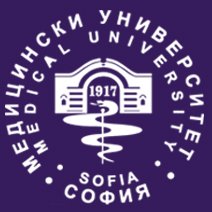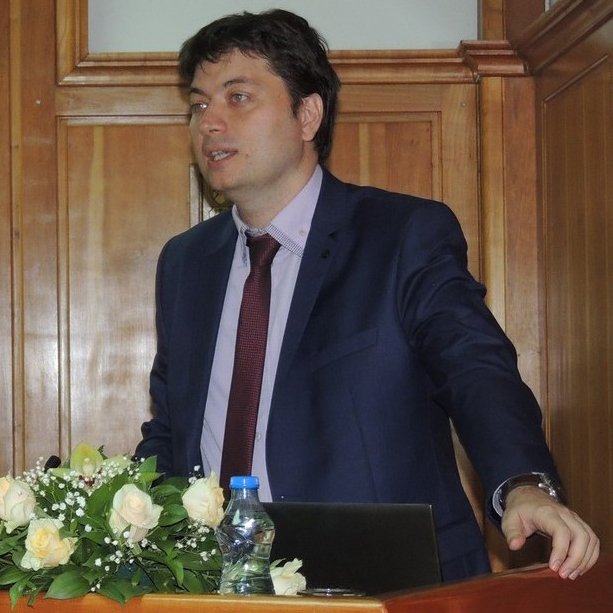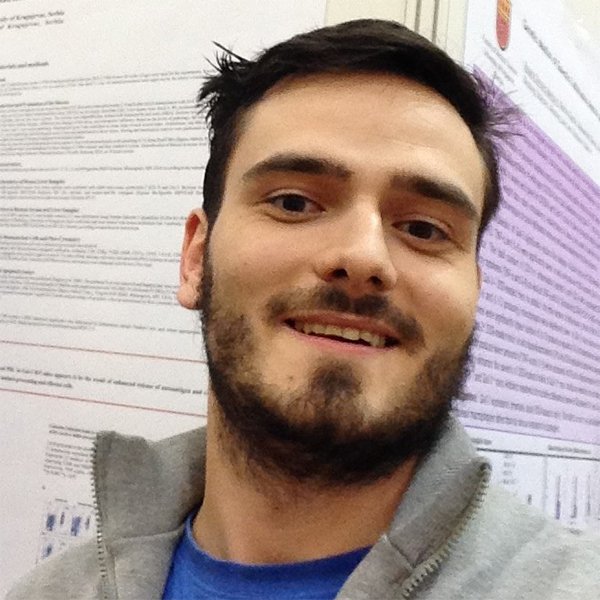About Us
Serbian research center for smoking harm reduction is established within Faculty of Medical Sciences University of Kragujevac, Serbia.
Serbian research center for smoking harm reduction is the first and currently the only smoking lab in Western Balkan countries. Its’ facilities including stem cell bank, research and education centers equipped with state of the art equipment for Good Manufacturing Practices (GMP)-based research in the field of molecular medicine, stem cell science and bioengineering (cell sorter, FACS machines, Roche xcelligence system, LM1 and LM4 smoking machines, cell culture cabinets, more than 200 cell lines).
Serbian research center for smoking harm reduction already established scientific collaboration with the biggest European smoking cessation institutions: Center of Excellence for the acceleration of Harm Reduction-CoEHAR (University of Catania, Italy) and Laboratory of Molecular Biology and Immunology-LMBI (University of Patras, Greece) and participated with them in several successfully realized and on-going research projects, including Foundation for Smoke free world funded projects: "Effects of electronic nicotine delivery systems on phenotype and function of immune cells of patients with chronic inflammatory diseases" and "Replica".
Serbian research center for smoking harm reduction is specially equipped with staff, technology, and services to conduct the high-level multidisciplinary scientific research, enabling education, innovation and dissemination of knowledge in the field of smoking harm reduction.

Strategic pillars of the Serbian research center for smoking harm reduction are: 1. top-tier scientific research, 2. education and 3. innovation focused on smoking harm reduction.
- Research: Researchers employed at Serbian research center for smoking harm reduction investigate molecular and cellular mechanisms responsible for the effects of cigarette smoke on immune response, genome and mental health.
- Education: PhD Curriculum in Translational Medicine which is partially dedicated to smoke-related pathology is implemented at The Faculty of Medical Sciences, University of Kragujevac. Classes for children and university students, lifelong learning seminars and behavioral educational courses about detrimental effects of smoking are regularly organized for adults.
- Innovation: Researchers employed at Serbian research center for smoking harm reduction will explore how innovative technologies can facilitate movement away from smoking to less harmful alternatives with smoking cessation as the intended outcome.
The long-term vision of Serbian research center for smoking harm reduction is to obtain a South Europe-leading position in the field of cigarettes smoke-related scientific discoveries which are essential for the translation of basic research to a benefit for patients.
Currently, one Full professor, two Associate Professors and 4 PhD students are working experiments related to the smoking cessation and smoking harm reduction.
Projects
Effects of electronic nicotine delivery systems on phenotype and function of immune cells of patients with chronic inflammatory diseases
Cigarette smoking significantly impairs immune cell phenotype and function in patients suffering from chronic inflammatory diseases (chronic obstructive pulmonary disease (COPD), inflammatory bowel disease (IBD), diabetes mellitus (DM)). Cigarette smoking modulates phenotype and function of immune cells that play important role in the pathogenesis of chronic inflammatory conditions. Cigarette smoking affects expression of chemokine receptors and migratory properties of leucocytes, alters production of anti-microbial products and inflammatory cytokines in monocytes/macrophages, dendritic cells, neutrophils and T lymphocytes. Cigarette smoking-induced changes in immune cell phenotype and function are most usually a consequence of alterations in gene expression. Cigarette smoke induces irreversible changes to the genetic material (DNA mutations) and reversible changes to the epigenetic landscape (changes in the DNA methylation and chromatin modification state) of immune cells, significantly impairing their effector functions.
Although effects of cigarette smoking on immune cells function is well described, electronic nicotine delivery systems (ENDS)-induced genomic and epigenomic changes which results in alteration of immune cell phenotype of patients with chronic inflammatory diseases is unknown and will be examined in this study.
Phenotype and function of peripheral blood mononuclear cells (monocytes, DCs, T cells, neutrophils) of cigarette and ENDS consumers with COPD, IBD and DM will be examined. Also, genome, exome, epigenome and transcriptome of cigarette and ENDS consumers with COPD, IBD and DM will be analyzed and compared. For this purpose, state-of-the art genetic and immunological techniques (RNA sequencing, cell sorting, flow cytometry analysis, intracellular staining, ELISA).
This study will delineate molecular mechanisms that are responsible for ENDS-based alteration of immune cell phenotype and function. Results obtained during the realization of this project will revealed ENDS-dependent changes in genome, exome, epigenome and transcriptome of patients suffering from chronic inflammatory diseases. Most importantly, this study will determine the exact genes, transcriptional factors and intracellular molecules which expression is differentially altered by cigarettes and ENDS, respectively. These findings will crucially contribute to the identification of new cellular and subcellular targets for the smoking cessation and will pave the way for the implementation of “from cigarettes to ENDS replacing strategy” for smoking harm reduction in patients with chronic inflammatory diseases.
Principal investigator of this study is Prof. Vladislav Volarevic who is the Head of Serbian research center for smoking harm reduction established within the Faculty of Medical Sciences University of Kragujevac. Currently, in this study, two Associate Professors and 4 PhD students are working experiments related to the smoking cessation and smoking harm reduction.
Partners

The Center of Excellence for the Acceleration of Harm Reduction
The Center of Excellence for the Acceleration of Harm Reduction (CoEHAR) is an international research center established within the University of Catania, Italy. CoEHAR is a unique multi-disciplinary research center focusing on promotion of best science in tobacco harm reduction via innovation, knowledge sharing and globalization. The CoEHAR board is made up of specialists including academics, doctors, professors and technical operators. CoEHAR implements international research projects and acts as a coordinating center at a global level for scientific research, development of tech innovation, training and education in the field of smoking cessation and harm reduction. Researchers work in an “open system” sharing data, assessments, observations and results.

ECLAT
ECLAT srl (ECLAT) is a spin-off of the University of Catania, born from the desire to enhance, concentrate and harmonize skills and professionalism that have developed in the academic, regulatory and industrial fields on the subject of reducing the risk of cigarette smoking, in order to provide advanced technological solutions and full scientific, communicational, technological, regulatory and management support to those working in the sector.

Medical University Sofia
Medical University Sofia (MUS), through its Molecular Medicine Centre, is the national hub and coordinator for Bulgaria in the European biobanking research infrastructure, responsible for collection of biological samples from patients and healthy individuals. The main activities of the Centre are focused on stimulation of state-of-the-art genetic research.
Researchers
Serbian research center for smoking harm reduction is led by Prof. Vladislav Volarević, who is employed as Full professor of Medical Genetics and Full professor of Immunology at the Faculty of Medical Sciences University of Kragujevac, Serbia.
Prof. Volarević possesses a unique combination of academic knowledge in Immunology, Genetics and Stem Cell Science enabling him to investigate the detrimental effects of cigarette smoking at molecular level.
Prof. Volarević is among the best cited Serbian researchers. During the last few years, Prof. Volarević published several papers dedicated to smoking cessation and harm reduction. He obtained several research grants and is a frequently sought-after speaker at international conferences and meetings.

Vladislav Volarević
Professor
Aleksandar Arsenijević
Professor
Nikolina Kastratović
PhD student
Dragana Miloradović
PhD student
Vladimir Marković
PhD student
Dragica Pavlović
PhD studentContact
Our Address
Svetozara Markovića 69, Kragujevac 34000, Serbia
Email Us
drvolarevic@yahoo.com